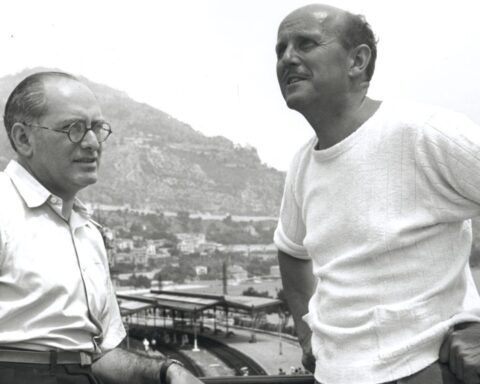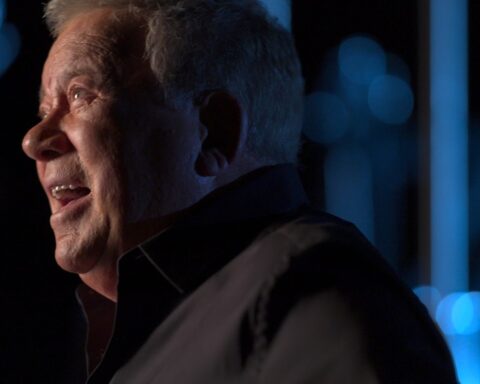Midnight Return: The Story of Billy Hayes and Turkey
(USA, 99 min.)
Written and directed by Sally Sussman
Alan Parker’s 1978 film Midnight Express generally holds up as a Hollywood classic. The film, which won Oscars for Oliver Stone’s screenplay and Giorgio Moroder’s memorable disco score, is a tense political thriller about the arrest of college student Billy Hayes who was caught carrying two kilograms of hashish while travelling in Turkey and sentenced to an irrationally harsh life sentence. Tough, dark, gritty, and violent, the film remains controversial for its intense story of a prison break and survival. Despite the laurels of Midnight Express, though, a new doc asks some hard questions that test the film’s legacy.
Canadian filmmaker Sally Sussman makes her doc debut after years writing and producing soaps like The Young and the Restless and Days of Our Lives with the provocative feature Midnight Return: The Story of Billy Hayes and Turkey. Sussman scores interviews with Hayes and the key creative players of Midnight Express including Parker, Stone, and producers David Puttnam and Peter Guber. (Brad Davis, who played Hayes, died in 1991.) The engaging nature of the interviews offsets the no-frills lo-fi style of the film. The range of access yields an entertaining and insightful discussion on Hollywood’s dramatic licence and the ethics of onscreen representation.
There’s a lot to unpack in the history of Midnight Express and Sussman admirably remains objective as the Hollywood icons offer mildly self-congratulatory anecdotes on their swift and economical production of this story ripped from the headlines. As Hayes recalls his traumatic experience in the Turkish prison, Sussman weaves the story within interviews with Stone as he recalls writing the film’s thrilling (if slightly fictionalized) screenplay before Parker and the producers largely shut him out of the production. Stone bitterly remembers that they didn’t even invite him to Cannes where Midnight Express rocked the Croisette with its graphic violence and alleged racism.
Sussman notices the racial politics of the film, which make for a timely reconsideration of Midnight Express and Hollywood movies in general as debates of onscreen representation amplify following #OscarsSoWhite. The filmmaker includes numerous voices from the Turkish community, who speak about the troubling and xenophobic representation of their country and its people. Excerpts from Midnight Express confirm their memories of nasty violent Turks beating poor Billy with bloodthirsty glee, while the non-violent Turks are bumbling idiots. (Sussman includes a nice shot of Billy’s Turkish lawyer picking his nose to illustrate the point.) They tell Sussman that Midnight Express didn’t even bother to use legitimate Turkish while filming in Malta with a mostly Maltese cast. Even Parker laughs that the ensemble spoke “Smurkish” while fumbling lines in broken dialogue.
One can easily see why Midnight Express had so much troubling securing a country for production and faced considerable controversy upon its international release. One doesn’t need to give a flattering portrait of Turkey while telling a story about an American who was harshly sentenced on a drug charge, but one there is a responsibility to tell a fair one. Parker, Stone, and company defend their representation of the Turkish characters, although Stone at least acknowledges they may have been insensitive to the needs of others, but the chorus of white guys rationalizing their use of one-note racist stock characters speaks volumes about the need for greater change and diversity in Hollywood.
However, history repeats itself as Midnight Return seeks a redemption narrative to bring closure to the tale. The interviews challenge Midnight Express’s depiction of Hayes as a well-to-do college kid who simply had bad luck being caught with some dope. (The doc also illustrates how this message helped popularize Midnight Express as a cautionary tale for kids to keep their noses clean.) It’s hard to argue against the notion that the Turkish government wanted to make an example out of Hayes for his drug charge. The more the film reveals about Hayes, however, and the more it gives him a spotlight to rehash his fifteen minutes of fame, the more it likens him to a shoddy wannabe drug dealer who committed a daring jailbreak and spun a lucratively successful victim narrative. When Sussman travels with Hayes to Turkey after the government finally drops his decades-long persona non grata status, the doc rings false as it chronicles his therapeutic return to the scenes of his notoriety.
The film shows that Hayes’s story and Midnight Express were deeply damaging to Turkey and its people, and the forgiveness, the sense of redemption, doesn’t go both ways. Midnight Return, like the classic film it interrogates, is an entertaining and well-intentioned film of flawed politics. One can appreciate the healing process for Hayes as he revisits the prison that housed him, but the weight he carried with Midnight Express is partly his own making. The rest of the onus is on Hollywood and Midnight Return admirably settles the charge on that front.
Midnight Return opens in Toronto at The Royal on Tuesday, Jan. 30











